First-year students struggling to study under “extreme conditions”
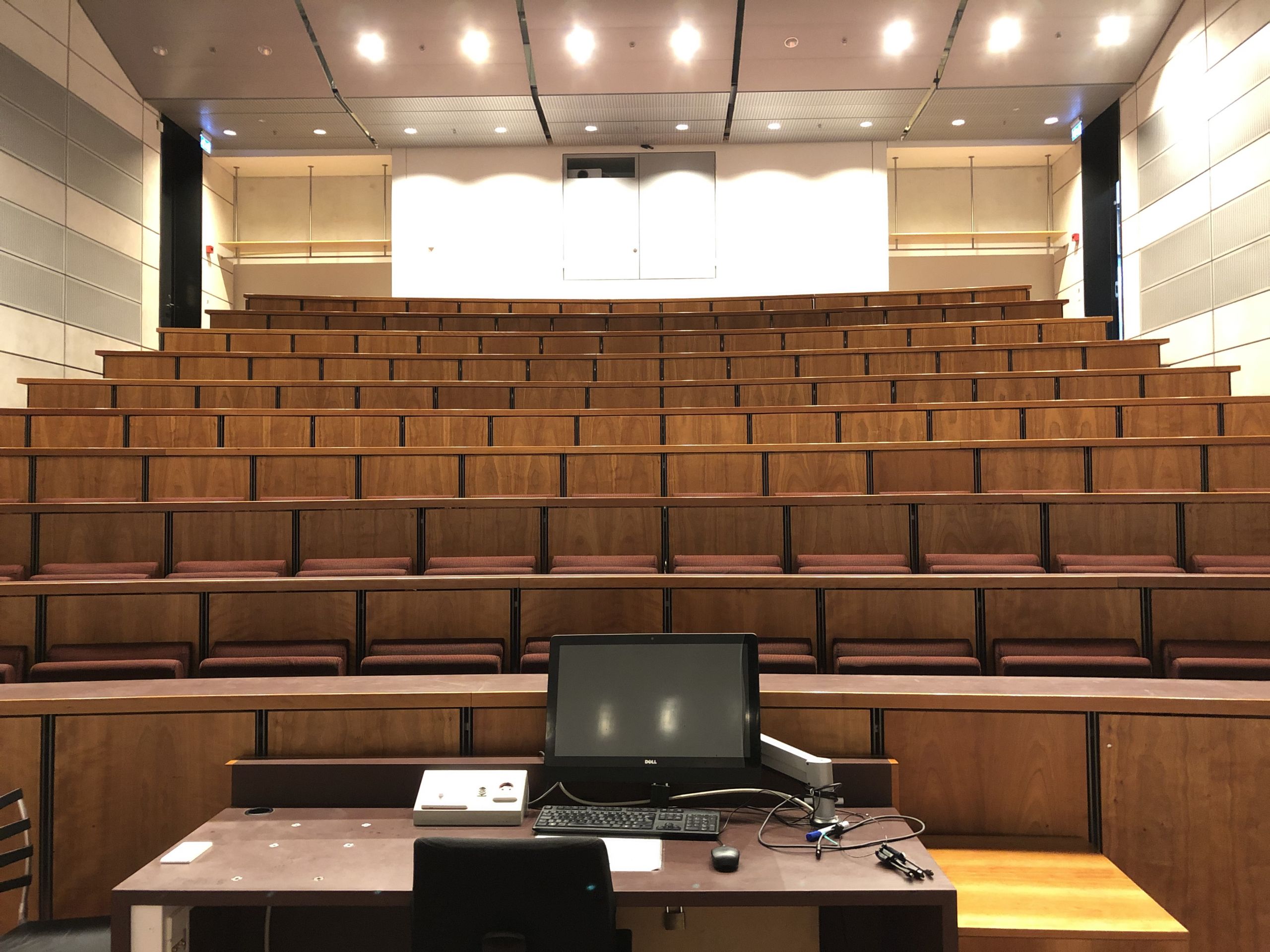
CBS' teaching principles states that at least 50 percent of the teaching activities must be online. First-year students from the IBP program have experienced that the amount of online teaching has been far more than 50 percent. (Photo: Mette Koors)
First-year students from the IBP program have on average received one on-campus lecture a week since semester start, which is causing demotivation to study, loneliness and thoughts of dropping out. The President of CBS Students, the Director of Program Administration and the Dean of Education respond to the situation.
This semester, at least 50 percent of all teaching must be online, according to the CBS teaching principles. Naturally, Signe Helms and Anna Selma Wentzer, both first-year students enrolled on the BSc in International Business and Politics (IBP) program, expected about 50 percent of their teaching to be conducted on campus.
However, this is not the case. Since September, they have had an average of one lecture on campus a week, leaving them frustrated, with a feeling of not knowing their classmates and no motivation to study, they explain to CBS WIRE.
“I’ve considered dropping out a couple of times,” says Signe Helms.
“Right now, you can see a maximum of 10 people at one time. That’s fine with me, I don’t even know 10 people,” says Anna Selma Wentzer explaining one of the consequences of not seeing her classmates regularly on-campus.

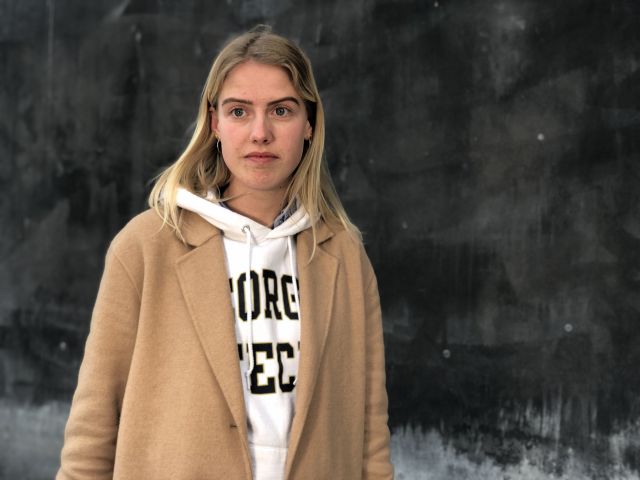
The two IBP students are not alone with their frustrations. Seventy-three of their classmates have expressed their support for the message in Signe Helms’ opinion piece on the situation, published in the Danish newspaper Information.
And according to CBS Students, it is most likely that the first-year students on the IBP program are not alone with their frustrations about too little on-campus teaching.
“I don’t have exact numbers, but it is my impression that a huge group of students feel lost. I know that the first-year students’ well-being is a priority, but it should be given higher priority,” says Sarah Diemar, President of CBS Students, and continues:
“We can’t keep using coronavirus as an excuse, we need to have many more initiatives on the table and be innovative. Other universities, like Roskilde University and Technical University of Denmark have found new ways of being together in the different student teams. They have a huge advantage in their size, but the important thing is they found alternatives. I believe we can do the same.”
Bitta Nielsen, Director of Program Administration at CBS, explains that, in general, CBS is meeting its own principles of 50/50 online and campus teaching, but she is aware that a few programs are struggling to meet the principles.
“When a few programs have a lot of their teaching online, it’s based on weighing different factors. The decision has been made from an overall view, and the study boards know it is causing frustration and upsetting the students,” she says.
Bitta Nielsen emphasizes that both the students and teachers are in a “serious situation” that CBS is continuously working to improve.
“These are extreme conditions to study under, and it’s especially tough when you don’t have much time on campus, which is why we take the matter seriously, as do the study boards when trying to find ways of optimizing study conditions,” she says.
It’s not a sprint or a marathon, but a relay race
CBS WIRE has also reached out to the Dean of Education, Gregor Halff, about the situation facing the first-year IBP students.
In an email, Gregor Halff underlines that “we need to take individual cases seriously”, and acknowledges that “both students and teachers are making great sacrifices to keep learning going in 2020”.
He explains that a precondition for maintaining learning this semester is converting at least 50 percent of a program’s teaching activities into online lessons, and, according to him, most of the 38 full-time programs are meeting the 50 percent on-campus teaching requirement.
“The study boards have made wise choices regarding which courses stay on campus – often the first-year courses – and which will be online. Beyond that, there will always be situations where individual teachers decide to teach online because they feel their health is more vulnerable than at other times. Together, we can keep our 1,200 teachers and 20,000 students safe in the learning process now, to return to a fully open campus soon,” he writes in the email.
For him, the current situation is neither a sprint nor a marathon that students, teachers and the university at large need to pull through.
“It’s been said that Covid-19 is not a sprint, but a marathon. I disagree: it’s not a marathon, but a relay race. We can only win it together. I’m confident that no teacher will be deaf to specific requests from students on her/his course; and that all students have compassion for the hard situation that some teachers are facing. If we talk to each other about specific challenges, we can win the relay race together,” he writes.
“We’re in a dilemma here”
Bitta Nielsen explains that the new students are encouraged and helped to form study groups in order to have a fixed point socially and academically on campus. However, particularly students who have not succeeded in forming social ‘bubbles’ are struggling, explains Sarah Diemar.
“Being a university student comes with a lifestyle, and a lot of that lifestyle is built around being on campus. So when you can’t be on campus, you need to figure out how to meet up elsewhere. And in that process, we especially risk losing people who have a harder time forming social bubbles,” she says, adding that CBS Students is aware that some students even fear visiting campus.
“We’re in a dilemma here, as we can’t move everything online or on-campus. We have groups of students who also fear showing up on campus due to health-related concerns, and we still have not heard from our international students about how they are doing. Right now, the international group also includes people from Jutland who cannot go home but are stuck in tiny apartments or dorm rooms. We can’t find a perfect solution and need to think out of the box.”
It’s unfortunate that so much of their teaching is online, but it’s not something that has been done to annoy the students intentionally
Bitta Nielsen
Sarah Diemar, however, points out that the students should be part of finding the solution or solutions, which is why they must also raise their voices like Anna Selma Wentzer and Signe Helms.
“We are in the midst of a social crisis, so if you want CBS to act, tell them what you are experiencing. Discuss the topic with your study group and take your thoughts to the study board. If this is your dream study program, then let us do something to make you stay,” she says and encourages students to reach out to CBS Students as well.
Online teaching is a nuisance
Bitta Nielsen says that more time has been available for planning teaching activities this semester – both online and on campus – as the online conversion did not happen overnight. Yet there is still room for improvement, she acknowledges.
“We are continuously working on improving and developing online teaching in collaboration with the study boards, so that we can take care of teaching and the students’ well-being under these extraordinary circumstances,” she says.
For example, CBS is looking into how the students can build an academic network, and explains that the first-year students are welcome to use the CBS mentor scheme to discuss the current situation and program-related questions. Moreover, she explains that the students can always reach out to the study counselors, who have also compiled a list of 10 tips for structuring studies and reading.
However, Anna Selma Wentzer from IBP feels that CBS could have been better at communicating to students the risk that potentially much more than 50 percent of the teaching would be online.
“We have emphasized in our communication that as much of the teaching as possible should be on-campus in order for students to get to know their program and their fellow students. We didn’t foresee that we would have programs where the share of on-campus teaching would be significantly lower. It’s hard to plan a semester under the current circumstances,” she says and continues:
“It’s unfortunate that so much of their teaching is online, but it’s not something that has been done to annoy the students intentionally. We do it to balance different factors so that our students can get as much teaching of the highest quality as possible.”
Bitta Nielsen hopes that the first-year students will experience having more on-campus teaching next semester, as more on-campus teaching will be allowed for.
“We are planning around and expecting more on-campus teaching in the spring compared to this semester. But we are not done with coronavirus, so we have to improve our online formats to match our physical formats,” she says.



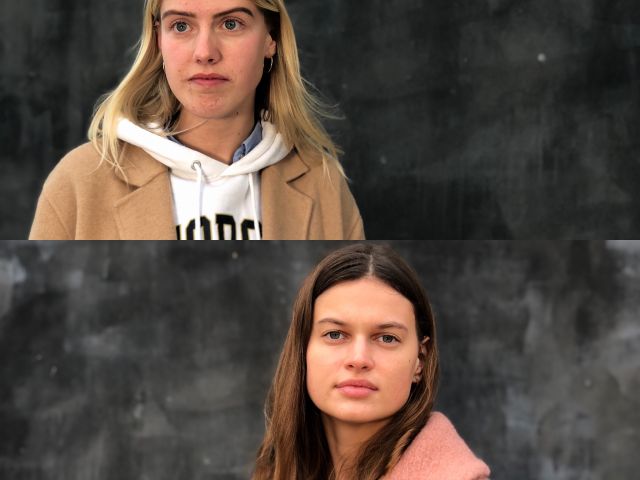
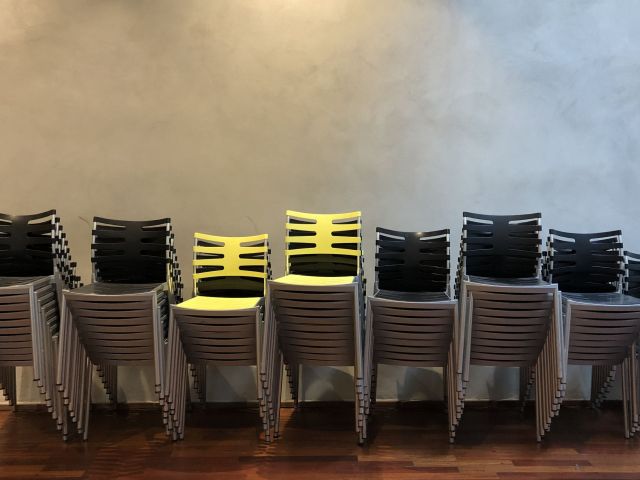

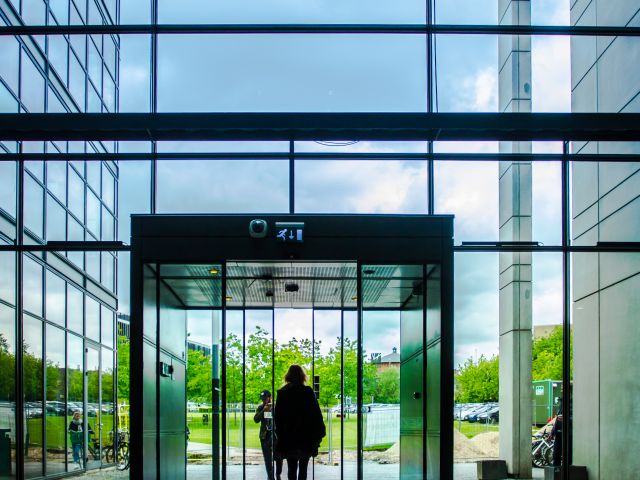
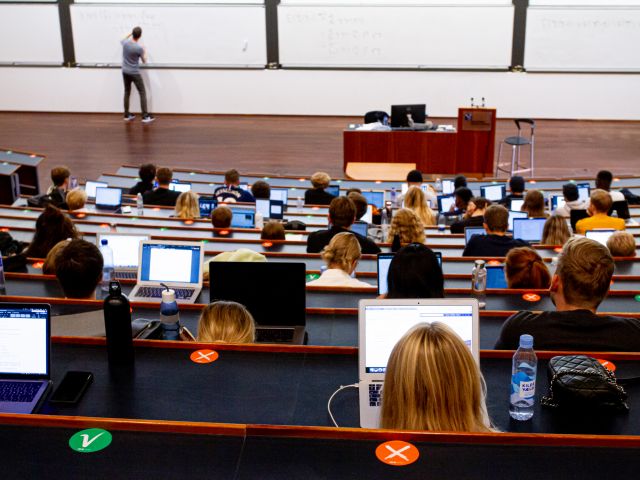

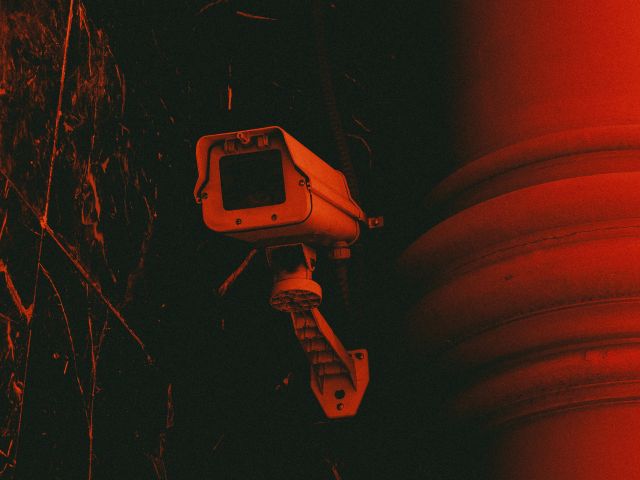

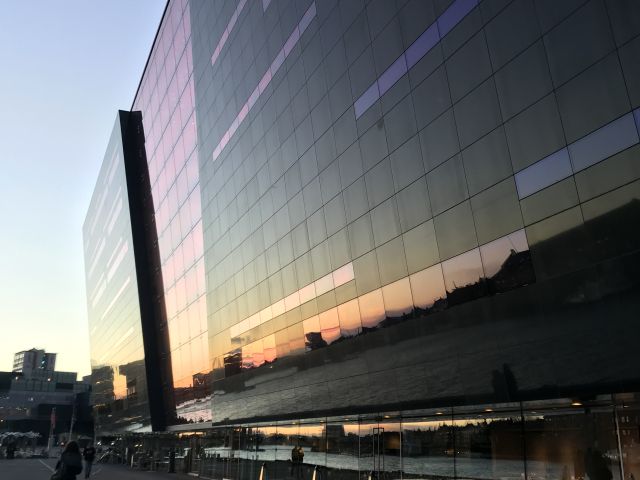




























































































































Come on! you guys will always find something to complain about. I wish there was a coronavirus pandemic when i started uni. It’s awesome, you don’t have to get out of your pajamas to go to class, you can almost cheat every test, if you miss your 8am class its fine since they are all recorded(plus you can rewatch them over and over in case you wanna go over a specific topic) and also you can live at your parents house and save all the rent money,which in Copenhaguen is quite a lot(while still getting all the SU money 🙂 )